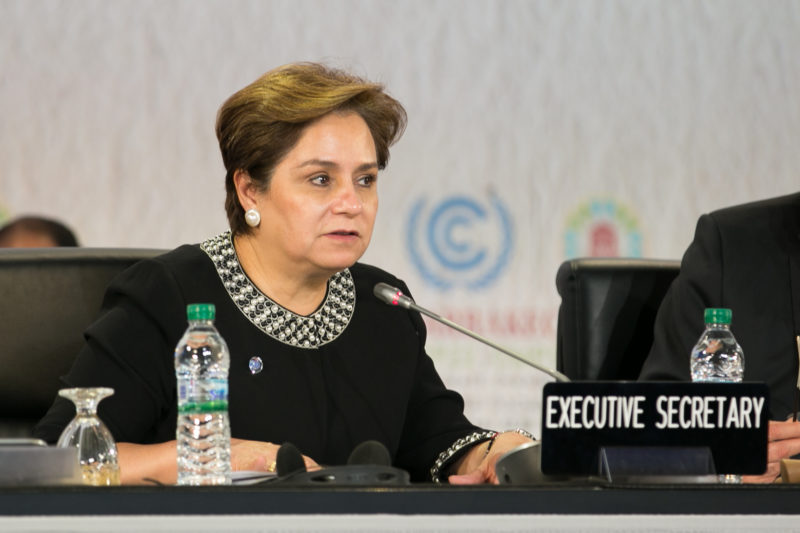The United Nation’s Clean Development Mechanism (CDM) should continue to spur emission reductions and sustainable development, on the ground, to help countries under the Paris Climate Change Agreement, companies, organisations and individuals meet their climate goals.

This was the message from some 80 Clean Development Mechanism (CDM) Designated National Authorities (DNAs) who met in Bonn, Germany, from September 19 to 20, 2017 at the secretariat of the United Nations Framework Convention on Climate Change (UNFCCC).
Projects and programmes registered under the CDM and which contribute to sustainable development – everything from clean cook stoves, to wind and solar power projects, to large industrial gases projects – earn a saleable credit for each tonne of emission reduction they achieve. The credits can be used by countries with a commitment under the Kyoto Protocol to meet a part of that commitment.
The Global DNA Forum “called on the Convention and Kyoto Protocol Bodies to provide clear guidance, as a matter of urgency, about CDM’s continued operation beyond the end of the second commitment period of the Kyoto Protocol (in 2020).”
“No doubt that the CDM, over the last 15 years, has established itself as a role model of market mechanisms in terms of the capacity and knowledge that DNAs, international and local institutions, consultants, (and others) have gained,” said Laurence Mortier, Co-chair of the Global DNA Forum.
This can be used “to harness other climate mitigation activities under nationally determined contributions” under the Paris Agreement, she said, citing the now broader reach and greater flexibility provided by CDM programmes of activities, the CDM standardised baselines, and leveraging the “value added” of the CDM in terms of sustainable development co-benefits.
The Paris Agreement allows countries to cooperate on climate action and established a “mechanism to contribute to the mitigation of greenhouse gas emissions and support sustainable development,” taking into account experience from existing mechanisms, like the CDM.
“With the adoption of Paris Agreement and its entering into force, we need all the tools we can use to advance mitigation efforts,” said Ovais Sarmad, Deputy Executive Secretary of UN Climate Change. “DNAs have the opportunity to advance carbon markets and mechanisms, including the CDM, among a multitude of options.”
Frank Wolke, Chair of the CDM Executive Board told DNAs: “The Board, with the encouragement of the Conference of the Parties serving as the meeting of the Parties to the Kyoto Protocol, continues to explore and support these expanded uses to ensure that the CDM is best used by all, that its emission reductions continue to be recognised, and that it continues to assist in the achievement of sustainable development for host Parties.”
There are now more than 8,000 CDM projects and programmes registered in 111 developing countries. Lately, credits from the CDM, called certified emission reductions, have seen use outside the Kyoto Protocol, for example in domestic emissions trading systems or for voluntary cancellation by companies, organisations and individuals wishing to supplement their emission reduction efforts.
The Global DNA Forum convenes Designated National Authorities from around the world, supporting the CDM at the national level to build capacity, share information, and discuss how to further support climate action through the CDM. The agenda and presentations made at Global DNA Forum 2017 are available here.
The Global DNA Forum elected new regional and global co-chairs for 2018:
- For African Group: Rachel Boti-Douayoua (Côte d’Ivoire), co-chair, and Wael Keshk (Egypt), alternate;
- For Asia-Pacific: Albert Magalang (Philippines), co-chair, and Nasimjon Rajbov (Tajikistan), alternate;
- For Latin America and the Caribbean: Federico Grullon De La Cruz (Dominican Republic), co-chair, and Lennox Gladden (Belize), alternate;
- For Eastern Europe: Maia Tskhvaradze (Georgia), co-chair, and Ms. Enkelejda Malaj (Albania), alternate;
- For Western Europe: Lorna Ritchie (United Kingdom), co-chair, none was elected as alternate;
- As Global Co-Chairs: Maia Tskhvaradze (Georgia) and Lorna Ritchie (the United Kingdom of Great Britain and Northern Ireland), who take over from Anne Omambia (Kenya) and Laurence Mortier (Switzerland).
